“None of us were the same after that day.”
– Questlove (of The Roots)
In 1995, Hip Hop music was at its pinnacle. It was in the midst of a second golden age that saw incredibly talented new artists burst onto the scene and create some of the best music the genre had ever produced. The pioneers were legends and the generation that grew up listening to them had grabbed the torch and continued to march further.
No longer dismissed as a “fad,” Hip Hop was becoming one of the most popular and most profitable musical genres in America. At the time, there was really only one Hip Hop publication that mattered: The Source. Before the Internet, before Twitter, before XXL, before Benzino’s hijacking, The Source really was The Hip Hop Bible. Yes, Vibe had come onto the scene in 1993 but it had more of an R&B slant and was still trying to gain its foothold. The Source was the be all and end all. Their album ratings — based on a scale of 1–5 mics — was everything. Receiving a 5-mic review in The Source was the equivalent of a comedian being asked by Johnny Carson to come over and sit on the couch. It meant that you produced a classic and if The Source gave its stamp of approval, no one would argue with it.
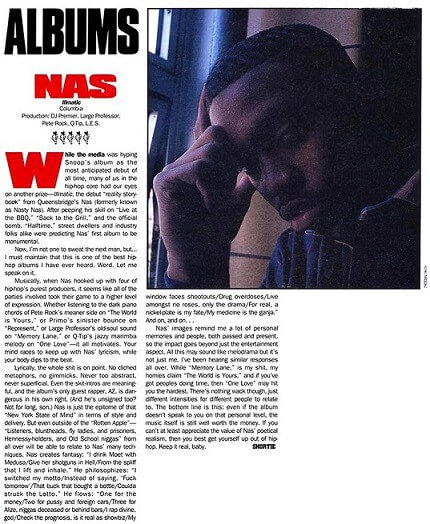
The coveted 5-mic review for Illmatic
On August 3, 1995, The Source held its second annual awards ceremony at Madison Square Garden in New York City. Just like the magazine itself, the awards were the only ceremony that celebrated Hip Hop music. The BET Awards were still six years away and VH1 Hip Hop Honors wouldn’t start for another nine years, so The Source Awards were the Hip Hop version of the Grammys, the Oscars, and the Golden Globes all rolled into one.
Before it changed Hip Hop forever for the worse, the show boasted some amazing performances, most notably long medleys by both Bad Boy and Death Row.
Of course, the night would be marred by controversy in several ways.
Upon accepting the award for Soundtrack of the Year, Death Row Records CEO Marion “Suge” Knight (who executive produced every Death Row album) announced:
Any artist out there that wanna be an artist and wanna stay a star and don’t wanna have to worry about the executive producer being all in the videos, all on the records, dancing, come to Death Row!
He was, of course, talking about Puff Daddy. He was booed by the New York crowd, but things would only escalate and the media-hyped East Coast — West Coast War had begun.
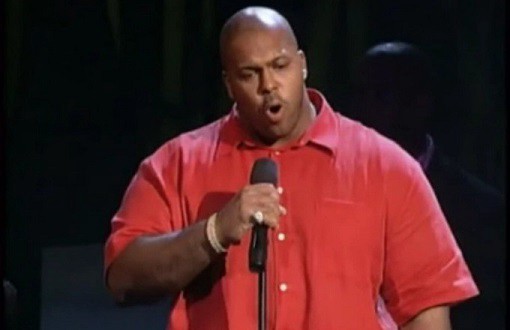
The verbal shot heard ‘round the Hip Hop world
Soon after, Dr. Dre walked to the stage to accept the award for Producer of the Year. Snoop Doggy Dogg accompanied him and, not liking the reception he heard, challenged the crowd:
The east coast ain’t got no love for Dr. Dre and Snoop Dogg? The east coast ain’t got no love for Dr. Dre and Snoop Dogg and Death Row? Y’all don’t love us? Y’all don’t love us? Well, let it be known then! We know y’all east coast! We know where the f*** we at! East coast in the muthafucking house!
Finally, Puff was presenting an award and defended himself:
I’m the executive producer a comment was made about a little bit earlier. But, check this out — Contrary to what other people may feel, I would like to say that I’m very proud of Dr. Dre, of Death Row, and Suge Knight for their accomplishments. And all this east and west? That needs to stop.
While Puff tried to be magnanimous, he wasn’t completely innocent. Everyone knew that he compared himself and Bad Boy to Suge Knight and Death Row and, at the start of Bad Boy’s performance, he had even said, “I live in the east and I’m gonna die in the east.” That wasn’t by accident.
Of course, we all know what transpired over the next 18 months:
- In December, 1995, shots would be fired at Tha Dogg Pound’s trailer as they recorded the video to their song, “New York, New York.” Their video shows Godzilla-sized versions of Snoop, Daz, and Kurupt walking around Manhattan and kicking over buildings.
- New York artists Capone-N-Noreaga, Mobb Deep, and Tragedy Khadafi record a song called “L.A., L.A.” Their video shows them taking a Kurupt lookalike, bounding and gagging him in the trunk, and throwing him off the Queensboro Bridge.
- Suge Knight bails 2Pac out of jail and signs him to Death Row.
- 2Pac, convinced that Puff and B.I.G. had set him up in his 1994 robbery and shooting, immediately began making songs dissing Bad Boy and most of the East Coast.
- Dr. Dre sees what’s happening and leaves Death Row. In exchange for leaving, Suge Knight demands that Dre leave everything — his masters, his equipment, everything — behind at Death Row. Dre complies.
- 2Pac’s double album All Eyez on Me is the hit of the year.
- 2Pac is involved in an altercation at the Mike Tyson — Bruce Seldon fight and, hours later, is shot and killed on the Las Vegas strip. Suge Knight, who was driving the car, was grazed in the head.
- 2Pac’s final album, The Don Killuminati: The 7 Day Theory, released under the alias Makaveli, is released posthumously two months later.
- Snoop’s sophomore album, The Doggfather, features no beats from Dr. Dre and is considered a major disappointment.
- The Notorious B.I.G. records a double album, Life After Death, on which he finally responds to 2Pac’s unending taunts without calling him by name on the song “Long Kiss Goodnight.”
- After a party in L.A., B.I.G. is shot and killed in his car, much like 2Pac six months earlier.
After that, everything changed.
The deaths of the culture’s two biggest stars in such a short time scared everyone and created a vacuum that has lasted to this day.
- Snoop left Death Row for No Limit and became much more positive in his music. Even on his more hardcore albums, he has more R&B and hope throughout. Also, despite his earlier “Death Row 4 Life” claims, he began dissing Suge Knight.
- Bad Boy became the biggest label in the world in 1997, making Puff Daddy a star as an artist, but it was not sustainable.
- Dr. Dre is a giant in the industry, creating a label in Aftermath that dwarfs anything he did at Death Row. Plus, the headphones.
- Many artists that had not been able to get on until that point, such as DMX, suddenly hit it big.
- Jay-Z filled the void left by the deaths of ‘Pac and B.I.G., creating his own drama with Mobb Deep when he said, “It’s like New York’s been soft ever since Snoop came through and crushed the buildings.”
- Perhaps looking to lighten up, the music went through several different phases, from crunk to bling bling to trap to the pop-R&B-rap fusion thing that is happening right now.
- It became a big deal for rappers to not shoot each other if they were in competition. There had been decades of rappers dissing each other — KRS-One vs. MC Shan, LL Cool J vs. Kool Moe Dee, the list goes on — but after the deaths of B.I.G. & ‘Pac, it was just expected that violence would erupt. The fact that Jay-Z and Nas not only didn’t kill each other, but managed to work together and become friendly went a long way in repairing the damage that happened that August night in 1995. It will never be fully repaired, but it’s better.
Speaking of Nas, it wasn’t just the Death Row — Bad Boy drama that happened that night. Something else, something more musical and less violent, but just as profound, happened that night. And it’s the reason why so many of us from age 29–40 wonder what happened to our music and why it’s not coming back. I’ll let Questlove explain:
The ideology of what I considered ‘real’ Hip Hop died at the 1995 Source Awards. I was literally at its funeral — I sat three rows behind Nas. In the audience, the Bad Boy camp was on the far right, all the West Coast and the Southern rappers were in the middle, and on the far left were all the New York underground rappers like Wu-Tang, Mobb Deep, Nas, Busta Rhymes, and us. That was the day when Suge called out Puffy, and there were fights in the audience. I felt like a bomb was going to detonate.
Nas’ body language that day told the whole story of where we were about to go. The more he got ignored for Illmatic, I literally saw his body melt in his seat. Almost like he was ashamed. He just looked so defeated. I was like, ‘Yo, he’s not gonna be the same after this s***.’ None of us were the same after that day. I feel like the true underground lost its oxygen that night.
Nas, realizing that his critically acclaimed album was being overlooked in favor of much more radio-friendly records, changed his musical approach that day. After that, he called himself Escobar, released The Firm album, and began reaching for radio airplay. Ironically, he’s still being snubbed at awards shows.
The awards were overlooked, but here is the rundown of the winners from the ’95 Source Awards:
- Artist of the Year, Solo: Snoop Doggy Dogg
- Artist of the Year, Group: Wu-Tang Clan
- New Artist of the Year, Solo: The Notorious B.I.G.
- New Artist of the Year, Group: Outkast
- Single of the Year: “Flava in Ya Ear” — Craig Mack
- Album of the Year: Ready to Die — The Notorious B.I.G.
- Lyricist of the Year: The Notorious B.I.G.
- Producer of the Year: Dr. Dre
- R&B Artist of the Year: Mary J. Blige
- Reggae/Hip Hop Artist of the Year: Mad Lion
- Video of the Year: “Murder Was The Case” — Snoop Doggy Dogg
- Live Performer of the Year: The Notorious B.I.G.
- Soundtrack of the Year: Above the Rim
- Best Acting Performance: Ice Cube — Higher Learning
- Lifetime Achievement Award: Eazy-E
- Pioneer Award: Run-DMC
Look at the names on that list. What a show. What a great era in Hip Hop. If only it could have continued. It’s been twenty years and all good things must come to an end, but it’s hard not to wonder what could have been.
The Hip Hop that I grew up with and loved died on August 3, 1995.
Rest in Peace.
Originally published on ChristopherPierznik.com.
Christopher Pierznik is the author of seven books, all of which can be purchased in Paperback, Kindle. He has written for a variety of other sites and works in finance. You can like his Facebook page here and follow him on Twitter here.
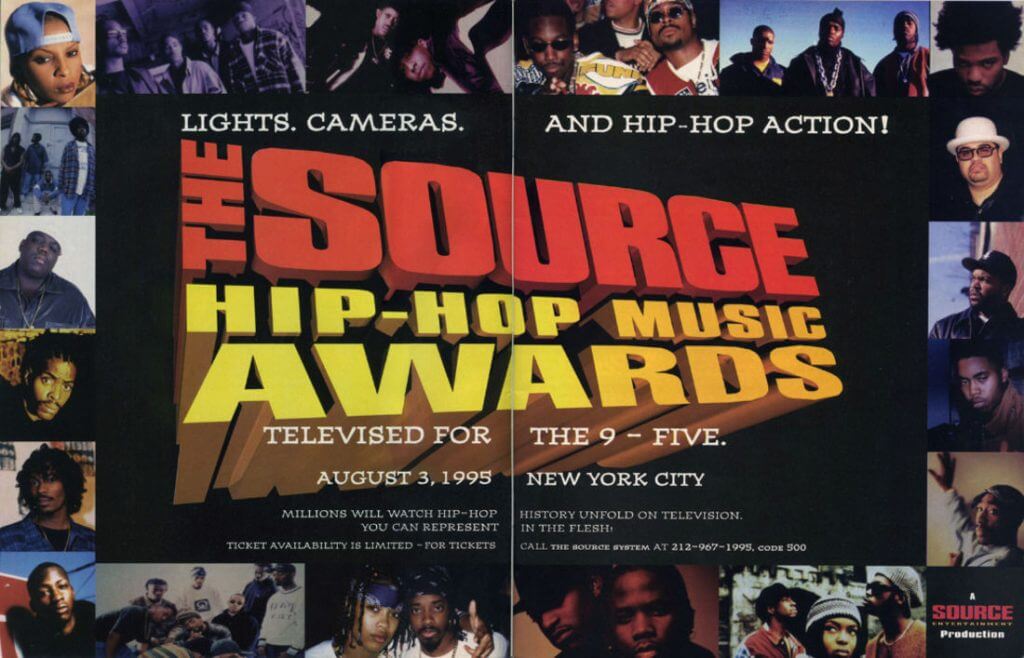
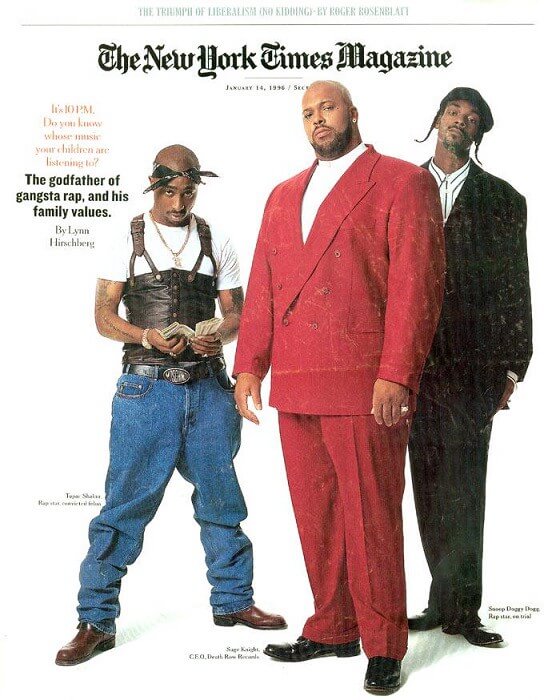
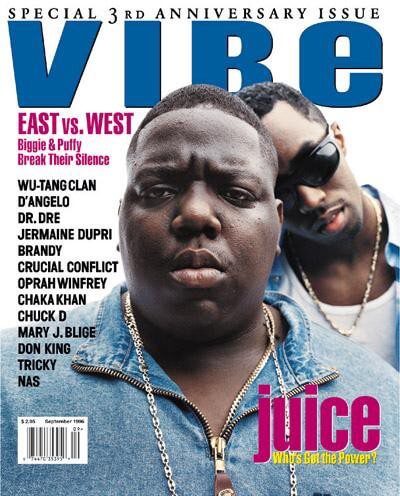
I have to say the awards given were pretty spot on though. On a positive angle, all this s*** pushed real Hip-Hop back where it belongs, in the underground!